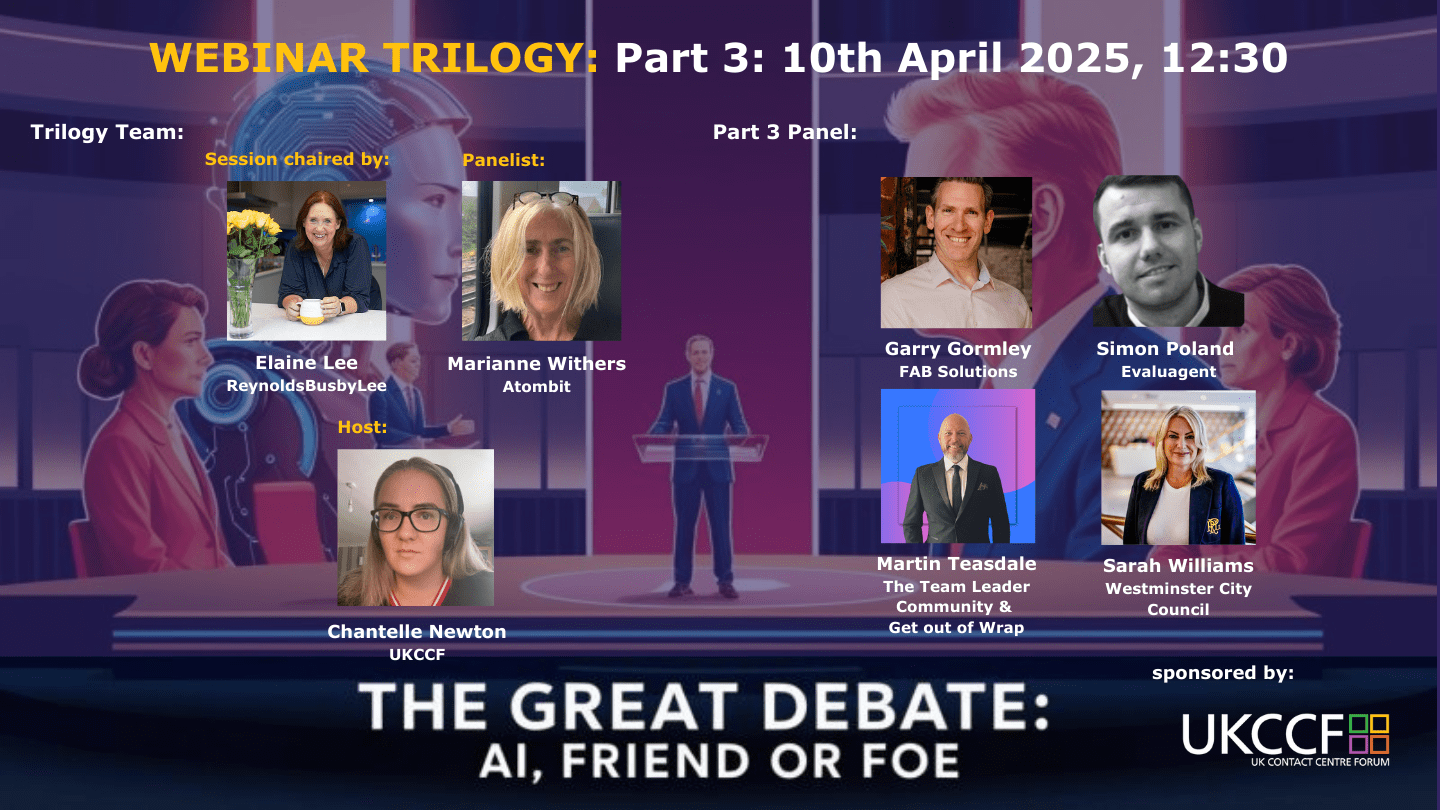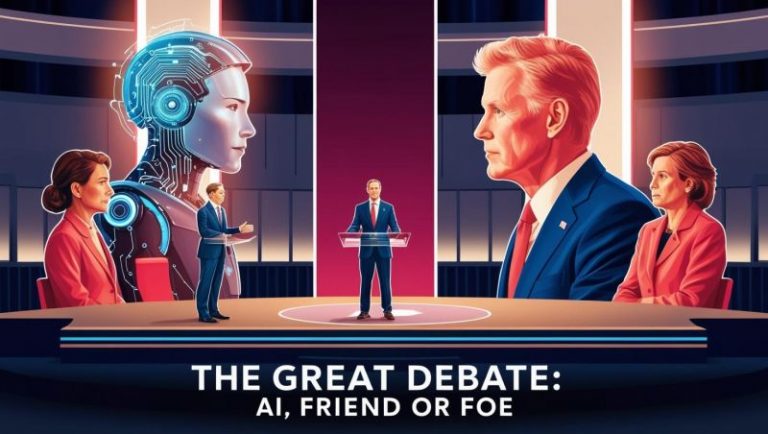Written by: Elaine Lee, Reynolds Busby Lee

Panellists:
- Marianne Withers, Atombit
- Garry Gormley, FAB Solutions – The Contact Centre Specialists
- Martin Teasdale, The Team Leader Community and Get out of Wrap
- Sarah Williams, Westminster City Council
- Simon Poland, EvaluAgent
Chaired by Elaine Lee, Reynolds Busby Lee
The recent “Great Debate” trilogy by the UK Contact Centre Forum delved into the transformative impact of AI on our industry, revealing some surprising insights, particularly from those on the frontline. Rather than widespread fear, polls conducted within the Team Leader Community and Westminster City Council’s contact centre teams showed overwhelming positivity or open-mindedness towards AI’s impact. Only a small percentage of those team leaders and front-line agents polled expressed negativity, often stemming from concerns about AI’s accuracy rather than job security.
This perspective challenges the common narrative that AI is primarily a “job killer.” Panellists strongly refuted the term “entry-level job” for contact centre agents, highlighting it as a role demanding high emotional intelligence, product knowledge, and communication skills. Instead, AI is emerging as a “job changer,” designed to elevate the agent role by automating mundane, repetitive tasks and freeing up agents for more complex, cognitively challenging, and empathetic conversations.
Organisations like Westminster City Council are already pioneering this shift, creating new “customer advocacy” roles focused on proactive outreach and case management for vulnerable residents. Their AI implementation has also provided apprentices with marketable skills, training image AI models. This demonstrates how AI can accelerate career advancement by exposing agents to cutting-edge technology while building crucial soft skills.
However, the discussion also surfaced critical considerations for successful AI adoption:
• Communication and Culture are Key: Effective communication from senior leadership, using inclusive language, is paramount. Where staff are actively engaged and involved early in AI projects, positivity thrives
• Beyond Cost-Cutting: While many companies eye a 20% bottom-line saving, focusing solely on cost can overlook the need for continued investment in staff development and support. AI should also be viewed through the lens of enhancing customer retention, loyalty, and proactive engagement
• Organisational Maturity Matters: Larger organisations often struggle with legacy systems and fragmented data, slowing down comprehensive AI adoption compared to smaller, more agile enterprises
• The Human in the Loop: A recurring theme was the importance of human oversight. AI should function as a “co-pilot,” supporting agents with real-time assistance and predictive analytics, rather than becoming fully “agentic” and making critical decisions without human context or empathy. Concerns were raised about AI making decisions on sensitive issues like eligibility for free school meals, emphasising the need for ethical guidelines and bias testing
• Investment in Learning & Development: As AI handles simpler queries, agents will face more complex interactions. This necessitates a revolution in learning and development, providing deeper training in areas like customer empathy and systemic social work practice
Promising AI tools and applications include:
• Real-time Agent Assistance/Co-pilot tools for optimising the agent’s journey
• Predictive Modelling for Workforce Management (WFM) to mitigate peaks and strategically deploy chatbots without “hammering” human teams
• AI-powered analysis of agent burnout indicators to surface specific support slots
• Quality Intelligence that moves beyond traditional scorecards to predict conversation complexity, vulnerability, and resolution outcomes
• Generative AI for conversation summaries which can be recorded as notes
Conclusion:
Ultimately, the consensus points towards a very positive future for AI in contact centres when it is implemented thoughtfully, with clear use cases, and when agents and teams are involved in the conversation. It is about a holistic people strategy where technology and people work together to deliver amazing benefits for both customer and employee experiences.
If you’d like to watch the recordings of any of the three Great Debates you can find them here:


